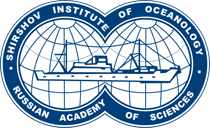 Mikhail Krinitsky, senior researcher of the Institute of Oceanology of the Russian Academy of Sciences and head of the Laboratory of Machine Learning in Geosciences at MIPT, at the Congress of Young Scientists 2023, as part of a meeting with the President of the Russian Federation Vladimir Putin, discussed global warming and the perception of artificial intelligence methods both among Russian scientists and in international arena. About educational projects in the field of AI and modern problems.
Mikhail Krinitsky, senior researcher of the Institute of Oceanology of the Russian Academy of Sciences and head of the Laboratory of Machine Learning in Geosciences at MIPT, at the Congress of Young Scientists 2023, as part of a meeting with the President of the Russian Federation Vladimir Putin, discussed global warming and the perception of artificial intelligence methods both among Russian scientists and in international arena. About educational projects in the field of AI and modern problems.
Previously, Mikhail Krinitsky spoke on the AI4Planet aij.ru podcast at the AI Journey conference in the field of artificial intelligence technologies. Mikhail and the discussion participants spoke about the directions of development of artificial intelligence technologies that are used in the tasks of monitoring parameters characterizing climate change.
The podcast touched on issues of climate risks, global and specific to Russian territories. Among the risks, thawing of permafrost, the increasing frequency and intensity of extreme natural events such as droughts, floods, hurricanes, typhoons, and mesoscale convective events were especially noted.
As part of the discussion, Mikhail outlined the main vectors for the use of AI in tasks related to monitoring characteristics and adapting to a changing climate. Mikhail called the main directions of research the use of AI in problems of determining meteorological quantities traditionally observed or measured by experts: characteristics of cloudiness, wind waves, position and size of mesoscale convective phenomena in Earth remote sensing data. The Institute of Oceanology has developed AI-based technologies for processing primary data from automatic field observations and remote sensing data, making it possible to replace the observer in such studies.
In addition, Mikhail mentioned other promising areas for using AI models, which in the future will make it possible to speed up or refine forecasting. In particular, the approach to accelerating the modeling of physical processes using surrogate neural network modeling was mentioned. In the future, this approach will make it possible to quickly assess the uncertainty of weather forecasts and climate scenarios.
In addition, Mikhail described the neural network approach developed by his research group for approximating the internal characteristics of geophysical processes in the atmosphere, ocean or soil. This approach will enable more accurate and computationally efficient data-driven modeling of complex natural systems, in contrast to the first-principles modeling approach.



